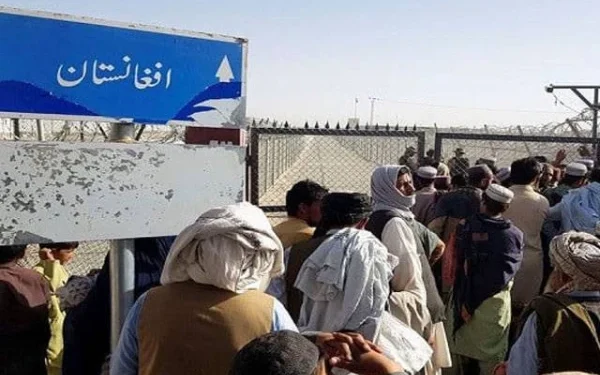Islamabad – The expiration of Proof of Registration (PoR) cards held by more than one million Afghan refugees in Pakistan has sparked widespread anxiety within refugee communities. As the deadline passed on June 30, 2025, the legal status of these long-term Afghan residents has become uncertain, prompting fears of forced repatriation, economic disruption, and a potential humanitarian crisis.
For many Afghan nationals, who have been living in Pakistan for decades—some since the 1979 Soviet invasion—the prospect of losing legal residency threatens not just their homes but the hard-earned assets and livelihoods they have built over several generations.
Understanding the PoR Card: What It Means for Afghan Refugees
The Proof of Registration (PoR) card is a legal identification document issued by the Government of Pakistan in collaboration with the United Nations High Commissioner for Refugees (UNHCR). These cards provide registered Afghan nationals with temporary legal status, allowing them to reside, work, and access basic services in Pakistan.
PoR cards were introduced in 2006 as a response to the growing population of Afghan refugees who had fled decades of conflict in their homeland. These documents are typically renewed every few years. However, the latest cycle expired on June 30, 2025, and no renewal decision has been announced yet by the federal government.
Growing Concerns Amid Uncertainty
With no official announcement on an extension, more than a million Afghan refugees are now living in legal limbo. For these individuals and families, many of whom have been integrated into Pakistani society, the uncertainty is not merely bureaucratic—it is deeply personal and financially devastating.
Economic Impact and Asset Liquidation Fears
One of the most significant concerns among Afghan PoR holders is the risk of losing their financial assets. Many refugees have invested in businesses, land, homes, and vehicles over the past several decades. If forced to leave Pakistan without a structured exit plan, they fear being compelled to sell these assets at heavily depreciated prices.
“We have invested our blood, sweat, and tears into building lives here. If our legal status is revoked without fair negotiation, we will lose everything,” said Ahmad Shah, a businessman from Pakistan’s tribal belt.
He revealed that the Dostukhel tribe, to which he belongs, collectively holds more than Rs52 billion in both movable and immovable assets, most of which are registered under the names of local Pakistanis to circumvent property ownership restrictions. He also claimed that his tribe contributed over Rs14 billion (approx. $51 million) to Pakistan’s foreign remittances last year alone.
Background: A Long History of Afghan Migration to Pakistan
Afghanistan has been one of the largest sources of refugees globally for over four decades. Since the Soviet invasion of 1979, millions of Afghans have sought shelter in Pakistan to escape war, violence, and instability in their homeland.
Key Migration Phases:
- 1979–1989: Soviet-Afghan War
- 1996–2001: Taliban regime
- 2001–2021: U.S.-led NATO operations
- Post-2021: Taliban return to power and subsequent economic collapse
Currently, according to UNHCR data, Pakistan hosts around 1.6 million Afghan refugees, down from over 3 million at the height of the crisis. Of these, 1.3 million have been repatriated since November 2023, when the government initiated a drive to remove all “illegal foreign nationals.”
Government Policy: Deportation of Illegal Migrants and National Security Concerns
The Pakistani government announced in late 2023 that all undocumented foreign nationals, including Afghans, would be deported due to rising concerns over security threats, smuggling, and economic pressure. The policy triggered mass repatriation efforts and sparked criticism from human rights organizations and refugee advocacy groups.
Minister’s Statement on Visa Reforms
While implementation of the deportation plan has reportedly slowed, State Minister for Interior, Chaudhry Talal, told The Express Tribune that the government is still undecided on whether to extend PoR card validity or issue long-term visas.
“We are working on a new visa policy that will not only safeguard national interests but also encourage foreign investment,” Talal said. “Afghan nationals, especially entrepreneurs and skilled workers, will be able to benefit from this upcoming framework.”
Future Options Under Consideration
According to officials familiar with ongoing discussions, two options are currently being evaluated by the Pakistani authorities:
- Temporary Extension of PoR Cards: This would provide short-term legal cover while a more comprehensive policy is drafted.
- Issuance of Long-Term Investment or Work Visas: Afghan nationals meeting certain financial, professional, or business criteria may be allowed to stay under the new visa regime.
However, refugee advocacy groups argue that neither option goes far enough to address the root of the problem or to protect the rights of Afghan residents who have spent their entire adult lives in Pakistan.
Beyond Boundaries: Seeking a Permanent, Humane Solution
A policy think tank called Beyond Boundaries, initiated by the Center for Research and Security Studies (CRSS), is actively involved in backchannel diplomacy and policy recommendations related to the Afghan refugee situation.
This group is advocating for a comprehensive and sustainable policy that:
- Prevents the distress sale of Afghan-owned assets
- Protects the property and business interests of Afghan-origin entrepreneurs
- Encourages legal economic contributions
- Offers pathways for integration or structured repatriation
Beyond Boundaries has also urged the government to consider easing visa restrictions, particularly for Afghan businessmen, who have a proven track record of contributing to Pakistan’s local economy and trade sectors.
Humanitarian Concerns and Legal Implications
The expiration of PoR cards has not only raised concerns about economic instability but also potential human rights violations. Refugee advocacy groups, including the UNHCR, have expressed alarm at the prospect of forced returns without due process, especially for refugees who:
- Were born in Pakistan and have never been to Afghanistan
- Are integrated into local communities
- Lack the means or safety guarantees to return home
“Forcing people out without proper mechanisms risks creating a stateless generation and violates international refugee law,” a UNHCR spokesperson warned.
Regional and International Reactions
The international community is watching Pakistan’s refugee policy with cautious concern. Afghanistan’s Taliban-led government has called for a halt to forced repatriations, arguing that the country cannot absorb more returnees amid ongoing economic struggles.
International Appeals and Diplomatic Pressure
- The European Union, which funds refugee support in the region, has urged Pakistan to consult international bodies before deportations.
- UN agencies have appealed for a human rights-compliant approach.
- Human Rights Watch and Amnesty International have flagged potential abuses against returning refugees in Taliban-controlled Afghanistan.
Economic Contributions of Afghan Refugees in Pakistan
Despite being labeled as “foreigners,” Afghan refugees have contributed significantly to the Pakistani economy in various sectors:
- Informal labor markets (construction, agriculture, manufacturing)
- Small and medium enterprises (SMEs)
- Cross-border trade and logistics
- Remittances and foreign exchange earnings
Their role has been particularly notable in border provinces like Khyber Pakhtunkhwa and Balochistan, where many Afghans run successful wholesale businesses, transport companies, and food markets.
Conclusion: A Tipping Point for Refugee Policy in Pakistan
As Pakistan deliberates its future policy on Afghan refugees, the expiration of PoR cards represents more than just a bureaucratic deadline—it is a tipping point for national refugee policy, humanitarian responsibility, and regional diplomacy.
Unless the government takes swift and compassionate action, more than a million Afghan residents could be plunged into legal uncertainty, economic ruin, and personal hardship.
With a new visa policy under consideration, there remains a glimmer of hope that a balanced and humane solution can be reached—one that recognizes the contributions of Afghan refugees while addressing legitimate security and economic concerns.

























